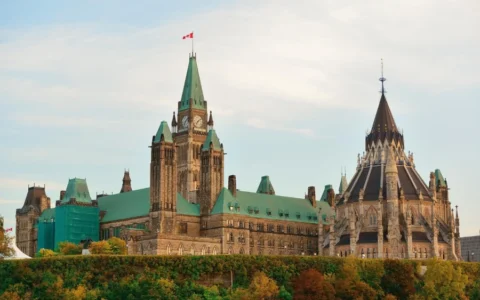The UK government has unveiled its 2025 Immigration White Paper titled “Restoring Control over the Immigration System”, outlining a bold roadmap to cut net migration significantly by 2029. These reforms, presented under Prime Minister Keir Starmer’s leadership, mark a shift toward domestic workforce development and a more restrictive migration policy framework. Below, we examine the key changes and their impact on global investors, students, and employers — supported by in-text citations from official sources.
1. Settlement Period Extended to 10 Years
One of the most consequential changes is the extension of the residency requirement for permanent settlement (Indefinite Leave to Remain) from 5 years to 10 years for migrants arriving after January 1, 2020. This policy will affect skilled workers, international students, and other long-term migrants.
2. Skilled Worker Visa Reforms: Narrower Eligibility and Higher Thresholds
The Skilled Worker route will now be open only to jobs classified at RQF Level 6 or higher (graduate level). Additionally, the minimum salary threshold is set to rise significantly, making it more difficult for certain sectors—especially SMEs and care services—to sponsor foreign workers.
(The Guardian).
3. International Students: Reduced Graduate Visa Duration and New Levy
International students will now face a post-study work visa reduced from two years to 18 months. Additionally, a 6% tax will be levied on universities for each non-UK student’s tuition income, placing financial pressure on both institutions and prospective applicants.
4. Phasing Out Foreign Care Workers by 2028
The UK government aims to reduce dependency on foreign care workers by 2028, requiring local authorities to prioritize training domestic staff.
(Reuters).
5. Stricter English Language Requirements Across All Routes
The White Paper proposes uniform, tougher English language tests across all visa categories to ensure migrants can integrate effectively into British society.
(The PIE News).
6. Employer Costs to Rise: Immigration Skills Charge Hiked
Employers sponsoring foreign workers will face higher financial obligations. The Immigration Skills Charge will be increased by 32%, and firms must now prove greater investment in training domestic workers.
(Reuters).
7. Family Visa Restrictions: Higher Income and Documentation Burdens
Family reunification will be harder, with higher income thresholds and stricter documentation for dependents.
A Strategic Reset with Global Ripple Effects
The UK’s 2025 Immigration White Paper is a major recalibration of the country’s approach to migration. For global investors, it signals a pivot toward national labour self-reliance — which may slow the inflow of skilled international workers. For educational institutions and multinational employers, the reforms present both challenges and a call to diversify their global mobility strategies.
As the UK turns inward on immigration, opportunities may grow in jurisdictions like Canada, Australia, Portugal, and the UAE — offering more open pathways for talent and investment.






